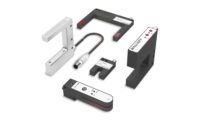Facing a decline in membership, unions are supporting legislation called the Employee Free Choice Act (EFCA, H.R. 800), which has passed the House and currently is on the calendar in the Senate.
Once upon a time, so-called robber barons exploited workers with reckless abandon. True accounts of sweatshops, child labor and myriad other abuses are legion. Regardless of the views one holds about organized labor today, pro or con, it cannot be argued that this led to the creation of organized labor unions and-more importantly-that the unions were the driving force behind enacting much of the labor law aimed at correcting these abuses.
As the organized labor movement gathered strength, however, the pendulum swung in the other direction, especially after the National Labor Relations Board (NLRB) was created in 1935. Although some felt that owners and management got just what they asked for and richly deserved, it can also be fairly said that, in some cases, unions have abused the hands that feed them.
But union membership has been dropping steadily for decades, now claiming only 12.1 percent of the workforce overall, and only 7.4 percent in the private sector. Facing this decline in membership, unions are supporting legislation called the Employee Free Choice Act (EFCA, H.R. 800), which has passed the House and currently is on the calendar in the Senate.
The EFCA has two components. First, it would replace the current system of secret-ballot organizing elections with openly signed card checks. Once organizers collect signed cards from a majority of a company’s employees, all of the company’s workers would be forced to join the union without a vote. Second, it would force employers and newly organized unions into binding arbitration if they were unable to settle on a collective bargaining agreement within 90 days from the start of bargaining.
Proponents claim the EFCA is needed because employers intimidate, harass and even fire workers who try to form a union, which prevents workers from exercising their choice. “The EFCA will give the 60 million workers who want a union a meaningful chance to have one,” says Mary Beth Maxwell, executive director of American Rights at Work (Washington).
James Sherk and Paul Kersey say that, contrary to union rhetoric, organizing elections are fair and do protect the rights of workers. Sherk, Bradley fellow in labor policy at The Heritage Foundation (Washington), and Kersey, senior labor policy analyst at the Mackinac Center for Public Policy (Midland, MI), say that the EFCA would strip workers of both their fundamental right to vote and their privacy. Both the union and the employer would know exactly which workers want to join the union, leaving workers vulnerable to threats and intimidation from either or both.
The simple fact remains that the secret ballot is the foundation of free elections in a democracy. Regardless of the rhetoric about advancing democracy in the American workplace, it appears that proponents of the EFCA continue to sidestep the fundamental point that it will, if enacted, deprive employees of their right to say yea or nay to a union via the secret ballot.
Is that free choice?
Recommended Articles
Related Articles
Related Directories
×
Never miss the latest news and trends driving the manufacturing industry
Stay in the know on the latest assembly trends.
JOIN TODAY!Copyright ©2024. All Rights Reserved BNP Media.
Design, CMS, Hosting & Web Development :: ePublishing




